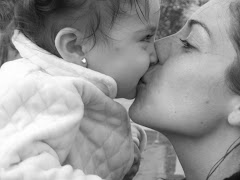On October 26, 1963, President John F. Kennedy gave a remarkable address at a special Convocation as part of the ground breaking ceremonies for the Robert Frost Library at A
mherst College in Amherst, Massachussetts, USA. In his
remarks, President Kennedy said, “Privilege is here, and with privilege goes responsibility.”
From the light of that autumn day, I am honored and humbled to serve as the Director of the Humane Worlds Center for Maternal and Child Health. We are a member of the
Future Search Network. I view this Center as an opportunity as a way to carry on Amherst’s commitment to its historic mission,
Terras Irradient, and to carry out the legacy, challenge, and hope that President Kennedy posed to the Amherst community 45 years ago. I have tried, humbly, to always be in a learning Terras Irradient mode in partnership with communities to untangle the complex tough roots that underlie public health disparities - social injustice and inequities. I have learned, taught, and practiced service that is highly collaborative, honors all voices, celebrates diversity, discovers common ground, and inspires people to realize their deepest aspirations. In 1993, I discovered the remarkable alignment between these ideals and the principles and methods of Future Search, and since then have sought to bring the two together in practice.
Through this service, I have discovered common threads that unite people from all walks of life and, at the same time, respect their uniqueness. I continue to learn how to serve in ways that bring out the best in people and tap into the capacity of our species for creativity, healing, and cooperating for the common good.
Much of the vision and practical action that forms the foundation for the Humane Worlds Center has its roots from my Amherst undergraduate years, and more recently the
Class of 1969 Project led by Justin Grimes. At Amherst, I had the privilege to organize and lead Amherst Amigos, a Peace Corps-like project in which teams of students lived and worked in rural Mexican villages. I became active in the Mount Toby Friends Meeting, took part in the Amherst Peace Vigil, and tutored students in Easthampton. For the summer after graduation, I was among the first group of counselors for the the then brand new Amherst ABC Project, whose rich legacy at the College and in the Town continues to this day.
At its best, Amherst College uniquely inspires its students to enlighten and change the world. At its best, Amherst nurtures a passion to live and work for the common good and, through community, to keep hope alive. The final verse of the “Hymn to Amherst” has always touched me to the core:
“In the love of Amherst hearts abides her greatest glory,
As the future still imparts the old unchanging story,
Youth and beauty, learning, faith,
Bound by friendship’s charter,
To the College we have made with eye and mind and heart.”
How this small college, in a once remote New England town, uniquely has the capacity to produce men and women of conscience and ideals is both mysterious and purposeful, a tribute to the vision of its founders and those who followed. I rejoice in this capacity.
Through the Humane Worlds Center, building on the successful record of Future Search and drawing from eight bodies of research, we strive to inspire a new generation of leaders in public health and service throughout the world. The Center works with partners, from private and public sectors, including Amherst through the
Center for Community Engagement, to improve the health of women and children. We hope to provide students with opportunities to grow as leaders who will do no less than change the world. We intend to foster conditions and opportunities for idealism without illusion to thrive.
As a Religion Major at Amherst, I studied the theologian, Paul Tillich, and came across a passage that has stayed with me ever since. “He who risks and fails,” Tillich wrote, “can be forgiven. He who never risks and never fails is a failure in his whole being.” People with the courage to confront injustice are risk takers. Amherst, at its best, encourages its students to take risks, and to challenge the status quo, not only in the external world but also within ourselves. The Humane Worls Center supports such courage and seeks to enable it to grow. At Amherst, we learn to question, probe, and engage in a lifelong search for authenticity and hope, all of which are key to a healthy mind, body, and spirit. With a combination of thoughtful, passionate, and practical idealism topped off by a healthy dose of humor, we embrace Amherst in embracing the Center and the quest for such health.
Terras Irradient,
Dick Aronson, Amherst Class of 1969











